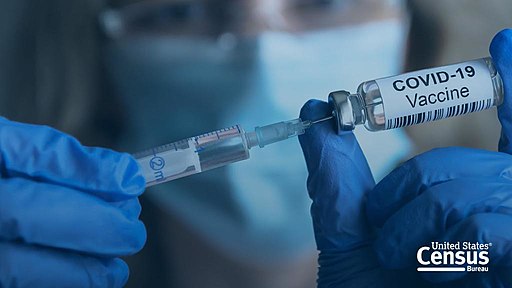
On May 27, US Health and Human Services secretary Robert F. Kennedy Jr. announced that the federal government no longer recommends COVID-19 vaccines for healthy children.
On May 30, the US Centers for Disease Control contradicted Kennedy, instead simply recommending that parents of children between the ages of six months and 17 years “discuss the benefits of vaccination with a healthcare provider.”
On August 20, the American Academy of Pediatrics took yet a third position: That “all young children” between the ages of six months and 23 months, possibly excluding “older children in certain risk groups,” should receive the vaccines.
One of these positions — the CDC’s — is consistent with both good medical practice and parental rights/responsibilities.
The other two — Kennedy’s and the AAP’s — try to substitute the one-size-fits-all judgment of a few supposed “experts” for the case-by-case judgments of millions of parents and doctors.
It’s not very often that you’ll see a good word from me where CDC is concerned. Its operations and recommendations often seem geared more toward affirming establishment policy positions than protecting Americans’ health. It’s nice to see the correct take coming from that corner.
Why should decisions on childhood vaccination be made by parents with the advice of their family doctors?
Put simply, vaccination entails both benefits and risks.
I’m not referring to “fringe” theories about the dangers of mRNA “clot shots,” or to the notion that preservatives in some vaccines may be linked to autism, although those certainly are, and should remain, up for discussion.
It’s an indisputable fact that some vaccines, including but not limited to COVID-19 vaccines produce allergic reactions in some patients. Those reactions can be fatal.
Vaccines, including but not limited to COVID-19 vaccines, have also been linked to Guillain-Barré Syndrome, a rare autoimmune disorder. Whether that linkage is directly causal or whether a vaccine is just the tipping point that “activates” GBS seems unclear, but it’s a risk either way.
Individual doctors are better positioned than “experts” a thousand miles away to evaluate their patients, their patients’ needs, and their patients’ risk levels, and offer their best advice on whether to undergo any medical procedure.
And individual patients — or, in the case of children, their parents/guardians — are the ones entitled by right to weigh the benefits and risks, seek advice or not, and make the decisions.
When a vaccine is administered, it’s injected into the patient’s body, not RFK’s body or the AAP’s body.
Does the phrase “my body, my choice” ring any bells?
It’s not just about vaccines. It’s about the whole range of health issues.
Oddly, many of those inveighing against vaccine choice take the correct position on treatment for gender dysphoria in minors — that parents and doctors should be free to do their best to help children.
Also oddly, many of those rightly invoking “parental rights” on childhood vaccine decisions claim that politicians, rather than parents and doctors, are entitled to decide for everyone on child gender dysphoria treatment.
Individual/parental choice is always preferable to letting politicians and bureaucrats choose for everyone.
Thomas L. Knapp (X: @thomaslknapp | Bluesky: @knappster.bsky.social | Mastodon: @knappster) is director and senior news analyst at the William Lloyd Garrison Center for Libertarian Advocacy Journalism (thegarrisoncenter.org). He lives and works in north central Florida.
PUBLICATION/CITATION HISTORY
